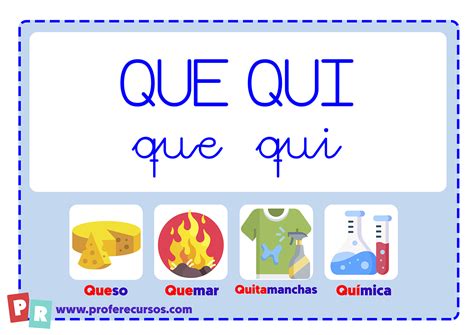que|que vs spanish : 2024-10-07 Learn how to use the Spanish interrogative pronoun 'qué' in different contexts and meanings. Find examples, synonyms, pronunciation, grammar and word frequency of .
Op Chrono24 vindt u 600.646 luxe horloges: Horloges van bekende merken .
0 · queueing vs queuing
1 · queue vs cue
2 · ques meaning in text
3 · ques meaning
4 · que vs spanish
5 · is it que or queue
6 · how to spell que
7 · another word for que
8 · More
Wij willen hier een beschrijving geven, maar de site die u nu bekijkt staat dit niet toe.
que*******What does the abbreviation QUE stand for? Meaning: Quebec. Is it que, queue, or q?
Learn the origin, usage, and synonyms of queue, a word that can mean a braid of hair, a waiting line, or a data structure. Find out how to distinguish queue from cue, coup, .Learn how to spell and use queue, que, and cue correctly in different contexts. Queue is a line of people waiting, que is Spanish for what, and cue is a signal to do something.Browse Spanish translations from Spain, Mexico, or any other Spanish-speaking country. Translate Qué. See 6 authoritative translations of Qué in English with example sentences, phrases and audio pronunciations.Find out how to use que in Spanish and English with different meanings and functions. Que can be a conjunction, a pronoun, an adjective, or a word that introduces clauses .Learn how to use the Spanish interrogative pronoun 'qué' in different contexts and meanings. Find examples, synonyms, pronunciation, grammar and word frequency of .
What is the difference between que and qué? Compare and contrast the definitions and English translations of que and qué on SpanishDictionary.com, the world's most .Learn the difference between qué and que in Spanish, when to use them with or without an accent. See examples, exercises and common expressions with que and qué.

The word que is a very common word in Spanish, Portuguese, and French. It variously acts as a type of conjunction or a pronoun meaning “that,” “who,” or “which.”.
queQuick Answer. In Spanish, qué and cuál are interrogative pronouns and interrogative adjectives that can mean what, which, or even how (much).Cuál is typically followed by a verb or de. However, in some regions of Latin America, you might find it followed by a noun. We use cuál: When we give options. These options may be specified by the asker or they may be inferred. For example:All of these questions will use qué in Spanish the majority of the time. The rule is: if you immediately follow a question word with a noun, the question word in Spanish should be qué. This is why it is much better to think of .English Translation of “QUÉ” | The official Collins Spanish-English Dictionary online. Over 100,000 English translations of Spanish words and phrases.pronoun. 3. (used to define the subject) a. who (person) El hombre que le salvó la vida a mi bebé está aquí.The man who saved my baby's life is here. b. which (thing) El libro que más ha influido en mí es este.The book which has had the greatest influence on me is . Que is a relative pronoun or a conjunction. Que means “that” or “which/who”. Have a look at some examples: El doctor dice que hoy no podremos visitarla. The doctor says we won’t be able to visit her today. A mi novio, que es ingles, le encanta la paella valenciana. My boyfriend, who is English, loves Valencian paella.Las palabras homófonas son las palabras que suenan igual, pero que no significan lo mismo y se escriben de manera diferente. Ejemplos de palabras homófonas son: haya, halla, aya y allá o cómo y como. Las palabras qué, cuál/es, quién/es, cómo, cuán, cuánto/a/os/as, cuándo, dónde y adónde son todas palabras tónicas que llevan tilde . Cuál vs qué is a topic that often confuses Spanish learners. Qué inquires about definitions, time, explanations, or identifies something. It’s the direct translation of ‘what’. Cuál means ‘what’ when used to ask for personal information and also inquires about preferences (which). Unlike qué, cuál has a plural form .
There are certain times where cuál would translate as "what" in English and qué would translate as "which". This can confuse English speakers. Here are some guidelines: If you are using a form of the verb ser, then unless you are asking the definition or meaning of something, you would use cuál even if in English, one would translate it as . As you can see in both situations, when requesting information, cuál vs qué can be a problem if you keep translating “which” and “what” into English. In the situation we’re talking about, both qué and cuál translate into “what.”. Therefore, think twice. Do you need a definition ( qué) or a name ( cuál)? 2.keh. ) phrase. 1. (interrogative) a. to what. ¿A qué conclusión llegaste con tu investigación?To what conclusion did you arrive with your research? b. what. No sé a qué libro te refieres, Pedro.I don't know what book you're referring to, Pedro. c. at what. How beautiful! ¡Qué maravilloso! How wonderful! The actual meaning of que here depends on the adjective used in the sentence. So, if you translate a sentence and use “what,” but it sounds off, try “how” to see how that works. 4. That. One of the most common ways to translate que (without an accent) is as “that.”.
1. (refiriéndose a personas) a. (como sujeto) who ⧫ that. el hombre que vino ayer the man who or that came yesterday. hable con alguien que entienda de esto talk to someone who knows about this. b. (como complemento: a menudo se omite) that. el hombre que vi en la calle the man (that) I saw in the street. que (relative pronoun use to introduce a subordinate clause) usually means "that", but can also mean which, who or what depending on the context. They are diacritical words (pronounced and spelled the same (except for the accent mark). The Qué may be intoned more just because it is in starts a question or exclamation similar to how we do it . Porque, written as one word with no accent marks, is a conjunction. You’ll use it to explain causes, reasons, or goals. 1. Causes. In this case, you’ll simply translate porque to “because.”. You can start a sentence with this word after you’ve heard a question, or use it in the middle of a sentence to explain a cause.
que que vs spanish How beautiful! ¡Qué maravilloso! How wonderful! The actual meaning of que here depends on the adjective used in the sentence. So, if you translate a sentence and use “what,” but it sounds off, try “how” to .1. (refiriéndose a personas) a. (como sujeto) who ⧫ that. el hombre que vino ayer the man who or that came yesterday. hable con alguien que entienda de esto talk to someone who knows about this. b. (como complemento: a menudo se omite) that. el hombre que vi en la calle the man (that) I saw in the street.
que (relative pronoun use to introduce a subordinate clause) usually means "that", but can also mean which, who or what depending on the context. They are diacritical words (pronounced and spelled the same (except for the accent mark). The Qué may be intoned more just because it is in starts a question or exclamation similar to how we do it .
Porque – Give Me Your Reason. Porque, written as one word with no accent marks, is a conjunction.You’ll use it to explain causes, reasons, or goals. 1. Causes. In this case, you’ll simply translate porque to “because.” You can start a sentence with this word after you’ve heard a question, or use it in the middle of a sentence to explain a cause.el babero. bib. 🚀 Remove ads. Spanish Pronunciation of Qué. Learn how to pronounce Qué in Spanish with video, audio, and syllable-by-syllable spelling from Latin America and Spain.
que actúa como testaferro. que adormece. que adorna. que afecta los precios. que ahorra tiempo. Have a look at the English-Northern Sotho dictionary by bab.la. Translation for 'qué' in the free Spanish-English dictionary and many other English translations. The two words, when they have accents, are used as interrogative pronouns in questions to mean "what" or "which." Qué is the same in the singular and plural forms; the plural of cuál is cuáles . Accented forms of these words appear only in exclamations and in questions, which includes an indirect question. The accented qué is found most .How nice! phrase. 2. (it's very positive) a. it's great. Qué bueno que quieras estudiar medicina. Tu abuela también fue doctora.It's great that you want to study medicine. Your grandmother was also a doctor. b. no direct translation.
qué hay (. keh. ay. ) phrase. 1. (what options are there) a. what is there. ¿Qué hay para almorzar? Tengo antojo de una sopa.What is there for lunch?¿Sabías que Tina y Héctor se dejaron? - ¡Qué va! Did you know that Tina and Hector broke up? - Wait, what! An adverb is a word that describes a verb, an adjective, or other adverbs (e.g. to run quickly, very tired). adverb. 3. (exclamatory) . The Difference Between Por Qué, Porque, Por Que, El Porqué . Para qué and por qué are somewhat easier to differentiate, but what happens when there are four words spelled almost exactly the same way and each with slightly different meanings: por qué, porque, por que and porqué?Something as simple as an accent mark can make all .
I'm beginning to learn Spanish as well. I just learned of the phrase, "No hay de que'" and had the same question. When I typed out the individual words in the phrase for literal meaning they mean the following: (Español/English) No = no; hay = there is; de = of; que = what. The direct English translation would be, "No there is of what."

Cumu to é cuestión de proporciós, sin que sirva de argumentu por nun fel falta, poemus vel que en a misma Europa hai Estaus Soberarius con menus territoriu que os tres lugaris nossus, cumu: As everything is a matter of proportions, without its presence being an argument, we can see that even in Europe there are Sovereign States with less .
Buy Breitling Chronomat 44 GMT (AB0420) Certified Authentic Pre-Owned watch from authorized retailer w/ 2-Yr warranty, Free Shipping.
que|que vs spanish






